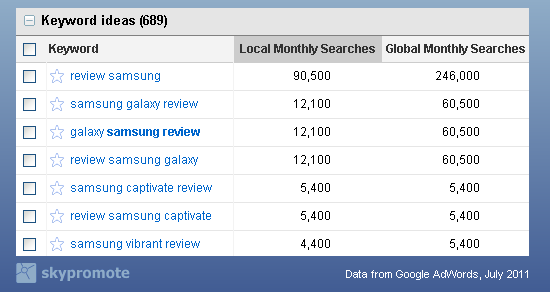Mobile Search Strategies For Online Retail
Previously, I took a look at how the travel industry can use mobile SEO in conjunction with desktop-based campaigns to reach customers at two points during their vacation planning: at home while booking the trip, and at the destination while planning their activities. This timing element could be applied to a lot of other industries; […]
Previously, I took a look at how the travel industry can use mobile SEO in conjunction with desktop-based campaigns to reach customers at two points during their vacation planning: at home while booking the trip, and at the destination while planning their activities.
This timing element could be applied to a lot of other industries; let’s look at online retail.
Product Searches
As search marketers, we understand the difference between someone typing in a generic product search, versus a brand or brand/product search. The generic searcher is earlier in the buying cycle, and approaching their research without a favorite brand in mind (at least, not one they’re openly expressing.)
In contrast, a desktop search for a product name indicates a person with an established preference. That person may be ready to buy, or checking price, availability, etc.
When that search originates from a mobile phone, it can indicate even more immediacy. It’s still a research activity, but it even more likely to be a price check. In fact, this person could be standing in front of the product right now, at a brick-and-mortar retail store.
A good price will seal the deal for the online retailer. But there’s a caveat: it’s very likely that the shopper will wait until they get home to make the purchase: on their PC. Repeat customers may have log-ins that work across all their devices, letting you tie the story together and credit your mobile campaign with the sale. But for non-loyal customers, this type of cross-channel attribution can be tough to figure out.
Mobile-specific coupon codes are a low-tech way to solve for this. A percentage of your customers will keep them, and use them when they hit the desktop site. (Be sure to inform your desktop IT team, so they can allow the mobile codes to generate discounts!)
Product Reviews
Reviews for a specific product are a common class of search terms, even in mobile search. Reading a review is a standard research action, but actively searching for reviews from a phone can indicate a customer who received a suggestion and is looking for a second opinion.
It could also be a customer who really wants this product, and is looking for more info to basically talk themselves into it (Or maybe that’s just what I do.)
Either way, you have a reader that already has this product on their shortlist. Landing page tests can determine what will get these shoppers to finally open their wallet.
Another coupon code might work here, but so could free shipping, or trustmarks like a magazine’s 5-star rating – anything that lowers the mental barrier to purchasing. The choice of tactics is important, because mobile screens won’t allow for a cluttered array of information.

Mobile search activity for one consumer electronics brand. Reviews are highly sought after, both in the US and global markets.
Part Numbers
This is more for the B2B arena, though it also applies to consumer electronics. A part number search from a mobile phone is a strong indication of someone needing a direct replacement for something they already have, be it a burned-out component or a duplicate of a product they’ve already tested.
This isn’t a time to emphasize value or trustmarks – what this person wants to know most is availability. “In Stock Now”, right next to the buy button, will motivate them to act.
Timing & Customer Intent
As mobile becomes more popular, it gives search marketers a great option for contacting potential customers at multiple points in the buying cycle. I’ll continue to look at different industries in future articles , if you have any requests, leave them in the comments.
Contributing authors are invited to create content for Search Engine Land and are chosen for their expertise and contribution to the search community. Our contributors work under the oversight of the editorial staff and contributions are checked for quality and relevance to our readers. The opinions they express are their own.
Related stories
New on Search Engine Land